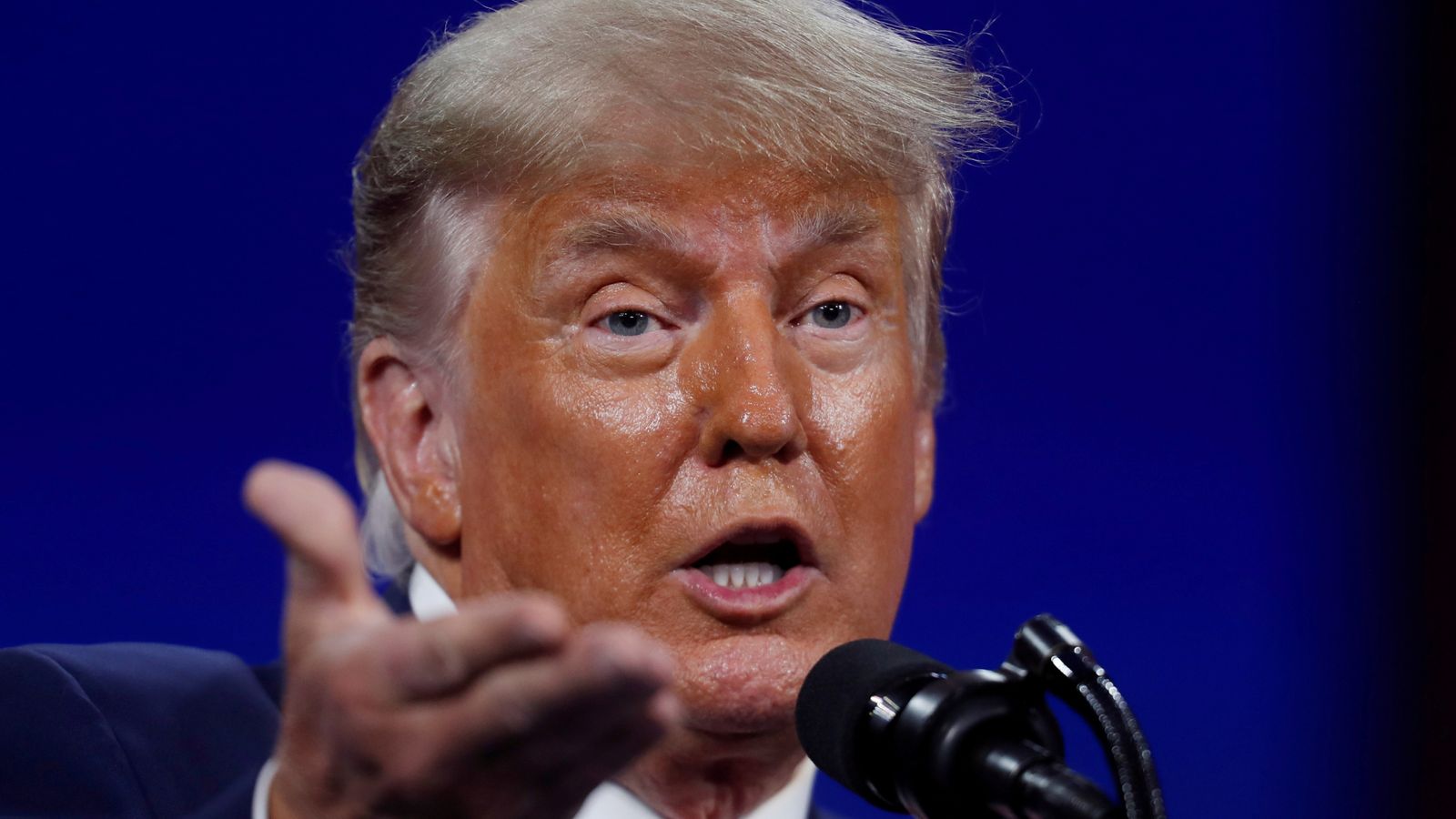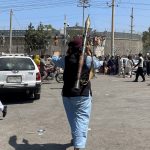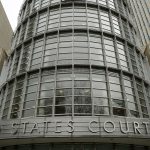Donald Trump has been suspended from Facebook until at least January 2023 after he “praised people” who took part in violence during the US Capitol riot.
The social media giant said the former president will only be allowed back on the platform if the “risk to public safety” had receded.
Facebook, which also owns Instagram, said it would be working with experts to determine if this was the case with Mr Trump, and would evaluate factors including instances of violence, restrictions on peaceful assembly and other markers of civil unrest.
It also said there would be a set of escalating sanctions that would be triggered if Mr Trump broke further rules that could lead to his permanent removal.
The technology company’s independent oversight board had in May upheld Facebook’s block on Mr Trump, which followed the unrest in Washington DC on 6 January. There had been concerns his posts were inciting violence.
However, the board ruled it was wrong to make the ban indefinite and gave the firm six months to determine a “proportionate response”.
The two-year suspension is effective from the initial date he was blocked – 7 January this year, when he was still commander-in-chief.
The timing means Mr Trump will not be able to use his accounts ahead of the November 2022 national midterm elections, when his party will be competing for congressional seats.
But he may be able to return to social media well before the next presidential election in late 2024.
Social media companies have grappled in recent years with how to handle world leaders and politicians who violate their guidelines.
Mr Trump’s suspension was the first time Facebook had blocked a current president, prime minister or head of state.
Nick Clegg, vice president of global affairs, said: “Given the gravity of the circumstances that led to Mr Trump’s suspension, we believe his actions constituted a severe violation of our rules which merit the highest penalty available under the new enforcement protocols.
“We are suspending his accounts for two years, effective from the date of the initial suspension on 7 January this year.”
Mr Clegg added: “At the end of this period, we will look to experts to assess whether the risk to public safety has receded. We will evaluate external factors, including instances of violence, restrictions on peaceful assembly and other markers of civil unrest.
“If we determine that there is still a serious risk to public safety, we will extend the restriction for a set period of time and continue to re-evaluate until that risk has receded.
“When the suspension is eventually lifted, there will be a strict set of rapidly escalating sanctions that will be triggered if Mr Trump commits further violations in future, up to and including permanent removal of his pages and accounts.
“In establishing the two year sanction for severe violations, we considered the need for it to be long enough to allow a safe period of time after the acts of incitement, to be significant enough to be a deterrent to Mr Trump and others from committing such severe violations in future, and to be proportionate to the gravity of the violation itself.”






















